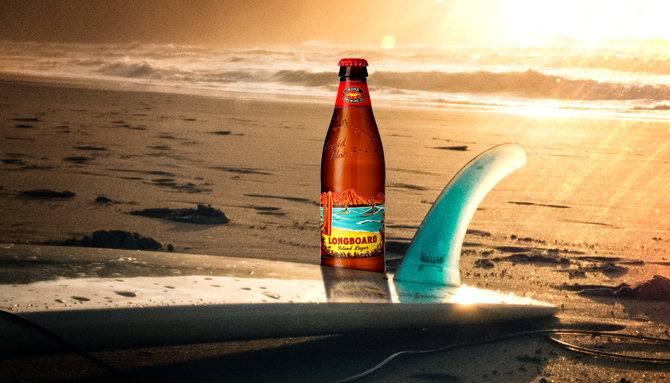
As Craft Brew Alliance (CBA) continues to execute on a Kona-Plus strategy that led to 10 percent depletion growth for the Hawaiian-themed brand in 2017, CEO Andy Thomas is working to transform the publicly traded craft beer company into a “smaller, but healthier” organization that prioritizes profitability over increased shipment volumes.
“Smaller isn’t always worse if it is more profitable and more sustainable,” he told Brewbound. “In today’s market, running leaner is one of the most strategic things you can do. You have more options to grow from a smaller but stronger base.”
CBA, which reported preliminary 2017 financial results yesterday, grew net sales by two percent last year even as company-wide shipments decreased by four percent.
Those shipment declines were driven by a continued effort to pull back distribution of the Widmer Brothers and Redhook brands from far away markets, as well as a year-long initiative to reduce wholesaler inventories.
“We are selling smarter,” said Thomas, noting that the company took about 10 days of wholesaler inventory out of the system in 2017. “We are trying to compete where we think we can win. 2017 validated that the market is getting tougher and tougher, but it was the best year we’ve ever had financially.”
Indeed, the company’s beer gross margins increased to 35.3 percent as CBA benefited from a rationalized brewery footprint that included the closure and sale of its Redhook facility in Woodinville, Washington.
The company also benefited from more “balanced” production at its Portland, Oregon, and Portsmouth, New Hampshire, breweries, Thomas said, as well as increased production at Anheuser-Busch InBev’s facility in Fort Collins, Colorado.
“We are feeling really good about the Kona brand, the way the company is operating and the way that we are working with A-B,” Thomas said.
CBA – which signed enhanced distribution and contract brewing agreements with A-B InBev, its largest individual shareholder, in 2016 – will continue to expand its relationship with the world’s largest beer company in 2018.
According to a filing, CBA entered into a new contract brewing agreement with A-B that will include the production and packaging of various A-B offerings at CBA’s breweries in Portland and Portsmouth.
“Portsmouth is an important part of our brewery footprint – now more than ever,” COO Scott Mennen told Brewbound. “We are going to be brewing some of A-B’s ‘High End’ beers that don’t necessarily fit their smaller breweries but aren’t ready for their bigger breweries.”

CBA will initially brew a session IPA for Goose Island, called Midway IPA, Mennen added.
As the two companies continue to work more closely, some analysts have speculated that 2018 could be the year A-B submits a qualifying offer to buy the smaller CBA.
Thomas wouldn’t comment on the likelihood of that occurring this year, saying the “only plan is to continue working together to drive value for each other the best that we can.”
“The work we did last year – improving our commercial operations, improving our wholesaler planning under the master distribution agreement, developing international markets, moving beer production in the Fort Collins facility – those are win-wins for everyone,” he said. “All of it leads to increased shareholder value. In the future, some of that value might ultimately be earned by being one company, but we haven’t quite gotten to that point.”
For 2018, CBA said it expects shipments and depletions to decline by as much as two percent or grow by as much as three percent. It also expects overall gross margins to grow as high as 35 percent.
It is also planning to focus more of its attention on “innovation,” Thomas said.
“Innovation for us needs to be something that no one has ever done before, not just something that we’ve never done before,” he said. “You will hear a lot more about that in 2018.”
A press release with additional information on the company’s 2017 financial performance is available on Business Wire.
